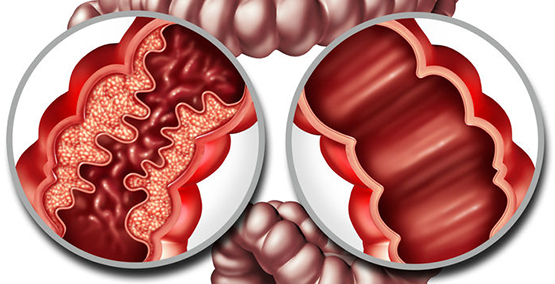
The Latest and greatest treatments for IBD: What to believe
What’s the best IBD medicine for me? Confusion on television and in your inbox....
See moresign up for our newsletter
SubscribeUnfortunately, IBD and IBS easily get confused because the names and initials are similar. But they are very different.
IBD, Inflammatory Bowel Disease, is the result of inflammation (imagine a swollen knuckle or a reddened sore).
IBS, Irritable Bowel Syndrome, is the result of the bowel reacting to certain foods and stress with spasm and sometimes, mucous production. It is sometimes called a Spastic Colon, which then becomes confused with colitis, which it is not, since colitis means inflammation of the colon. These spasms can be very painful and can occur with bloating. For some, the squeezing spasms can cause diarrhea; for other, constipation, or both).
| IBD | IBS | |
| Similar Symptoms | Pain, diarrhea | Pain, and diarrhea in some |
| Different Symptoms | Bleeding, anemia | More frequent bloating |
| Complications | Arthritis, liver, skin, eye disease | None |
| Testing | Inflammation | No inflammation |
| Medications | Specific to inflammation | Bowel relaxants |
| Surgery | When needed | None needed |
Because they are actually very different conditions, IBD is often treated with medicines intended to reverse the inflammation and an over-reactive immune system. IBS is treated with medications to relax the intestine and lessen the spasms. And the diets for IBD are generally different from the diet for IBS.
To make it just a bit more confusing, IBD patients can have spasms and IBS symptoms as a result of their inflammation. But again, because some patients have both IBD have IBS, those medications for spasms are sometimes carefully used on IBD patients as well.

This article, as well as all others, was reviewed and edited by a member of our Medical Advisory Board.
Subscribe Be the first to know